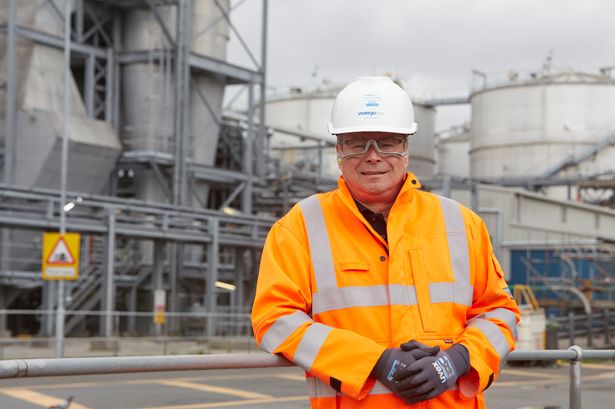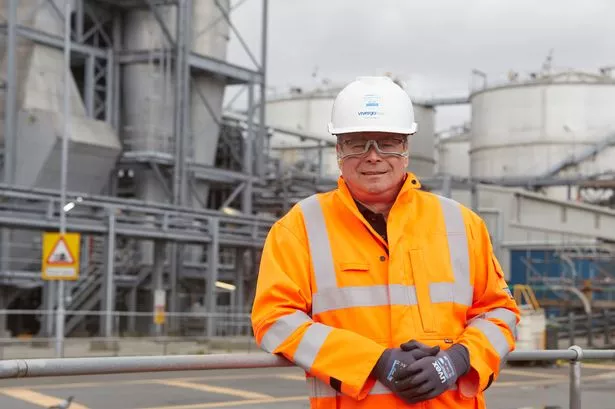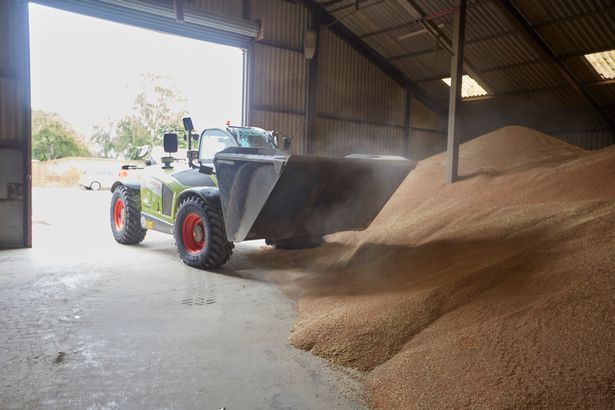
UK’s largest bioethanol plant said it will have to start making redundancies on Tuesday if government doesn’t step in
The boss of threatened Hull firm Vivergo Fuels has warned of “knock-on implications across the UK” if the Government fails to step in to keep it open. Vivergo’s managing director Ben Hackett – whose company runs the UK’s largest bioethanol plant – says he will have to start making his 160 employees redundant on Tuesday unless support is offered to secure its future.
It faces closure because of the US-UK trade deal which removed a 19% tariff on ethanol products imported from the US, meaning British bioethanol firms are unable to compete with cheaper and less regulated American imports. Vivergo buys more than a million tonnes of Yorkshire and Lincolnshire wheat each year from more than 4,000 farms and turns it into ethanol which helps make greener fuel for cars.
But it has received its final scheduled wheat delivery as crisis talks continue with the Government to try to keep it open. Bosses are hoping to get a promise of support from the Labour government over the weekend or early next week.
Mr Hackett told The Northern Agenda podcast: “We took our last delivery 10 days or so ago. So we haven’t been producing any ethanol for a week or so. So at the moment, we are emptying the tanks, cleaning the place of chemicals. And we are in a consultation process with the workforce and unless we hear some positive signs from government in the next sort of 72-96 hours, we will start redundancies on Tuesday next week.”
Listen to the full interview on The Northern Agenda podcast here:
Mr Hackett says Vivergo’s closure would jeopardise plans for a Sustainable Aviation Fuel (SAF) facility at Saltend Chemicals Park in Hull, set up as part of a £1.25bn agreement with Meld Energy. And he tells the podcast the knock-on effect would be felt much wider than Hull and East Yorkshire, with thousands of jobs in the company’s supply chain.
He says: “I think investors today will be looking at what’s happening and going ‘do I want to invest in what needs to be well-regulated industries such as green energy?’. And I think those investors will get spooked if they see Vivergo fail.
“And the only reason we’ll fail is because of government regulatory framework. Take this facility and put it in Holland, France, Germany, we’d be making money.
“So it really is up to the government to decide if they want to go down that path of growth, of jobs, of investment, or do they want to go down a path of unemployment, of decline, of stagnation, which I think would be an absolute tragedy, and not only for the region, but for the whole nation?”
He also hinted that the collapse of the bioethanol industry – where crops are turned into low-carbon fuels – would make the country less resilient should supplies dry up from abroad. “What could happen? If it’s hurricane season in the Gulf of Mexico and those ethanol boats that are supposed to be coming don’t come across to the UK. All of a sudden, there’s queues at the petrol station.
“Or imagine that the US gets a better deal for their bioethanol by shipping their products to India or to Nigeria or somewhere else in the world. And all of a sudden, we don’t have any bioethanol.”
He adds: “Farmers across the UK should be worried if they’re growing wheat because wheat prices will get depressed if there’s an extra million tonnes of wheat that has to be exported across to the continent. So they should be worried.
“And I think we also as a nation need to think about total growth. Closing down a manufacturing industry has knock-on impacts across the UK. So it’s not a question of this just being a local problem.
“This is a national problem. To see us go like this, I just think, would have knock-on implications across the UK.”
He and other industry leaders are calling for changes to regulations to help grow the bioethanol industry and financial support from the government to help it transition to a new system. The firm has also been backed by local politicians from across the political spectrum. Local leaders representing the Labour Party, Conservatives, Liberal Democrats, and Reform UK alike have all been backing Vivergo’s efforts.
A Government spokesperson said: “We know this is a concerning time for workers and their families which is why we entered into formal discussions with the company on potential financial support in June. We have engaged with the company and industry extensively since then. We will continue to take proactive steps to address the long-standing challenges it faces and remain committed to a way forward that protects supply chains, jobs and livelihoods.”



